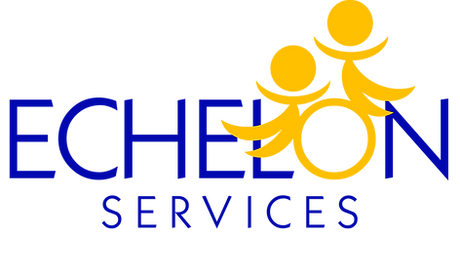

Self-Pay Client Services Offered
(Provided in All 50 States)
Supervised Visitation Services:
Involves providing face to face parenting time for non-custodial parents with their children in a supportive, unbiased environment. Our staff works with parents to direct them on appropriate parent-child interaction. Parents have the opportunity to play with their children, eat a family dinner, assist them with homework and projects, etc. We work with parents to help them gain parenting skills and effectively communicate with their children.
Echelon Services is staffed with Visit Supervisors who are trained in a trauma informed care approach and in the dynamics of domestic violence. We provide a creative solution to visitation. Families will receive strength based reinforcement for positive parenting behaviors and gentle redirection for areas that need improvement. We offer visits seven days per week to allow for maximum flexibility for families.
Supervised Visitation Services are available to assist parents and the court in assuring the safety of children through supervised interaction between the children and adults.
There are many situations in family law cases or other cases affecting the parent-child relationship when the need arises for a professional to supervise contact between parents (or others) and their children. This service provides court-ordered, supervised parent-child visitation, and/or assists in the reintroduction of a parent into a child’s life. Parents are provided with regular and constructive feedback about their interactions during supervised visits to assist them in better meeting the needs of their children.
Virtual Visitation Services:
For situations where in-person visitation between parents and children is logistically impossible due to barriers such as distance, Echelon Services provides supervised virtual visitation access through a video visitation HIPAA compliant platform called Zoom. This virtual service can be utilized as a stand-alone service or in combination with in-person services.
Monitored Exchange Services:
Exchanges occur to reduce conflict between the parents and the child witnessing such conflict when being transferred from one parent to the next parent for unsupervised parenting time. Staggered pick-up and drop-off times are usually arranged so that the parents do not have to have contact with one another. The actual exchange is monitored by the parenting center staff who generally try to ease the process for the child.
Monitored exchanges are a way for a child to be transferred from one party to another without the parties having contact with each other. The only thing that is supervised here is the exchange, not a party’s time with their child. Monitored exchanges are helpful if a someone feels unsafe or uncomfortable being around the other party. It also protects children from unhealthy interactions and conflict
Our Role:
-
Maintain confidentiality and neutrality
-
Ensure that the court's directives are followed
-
Monitor safety of all participants at visits
-
Relay relevant information relating to the child's welfare between the custodial parent and the noncustodial parent at the commencement and conclusion of supervised contact
-
Facilitate appropriate visit interaction, if necessary
-
Effectively communicate with program staff on issues related to family dynamics
-
Provide constructive feedback, correction, or redirection to the parties when necessary
-
Testify in formal court hearings, when appropriate
-
Suspend or terminate any visit in which the safety of participants or staff cannot be maintained
Echelon Services follows the proper protocol for the safety of the child and parent.
Our Responsibility to You:
-
Protect the confidentiality of the child and parent who receive program services to the extent required by law.
-
To maintain records according to the "Minimum Standards” and protecting location information regarding victims of domestic violence and their children.
-
Refrain from discussing individual cases except in formal court proceedings, with program staff, or pursuant to program policies with lawyers, social services agencies or parties to the case.